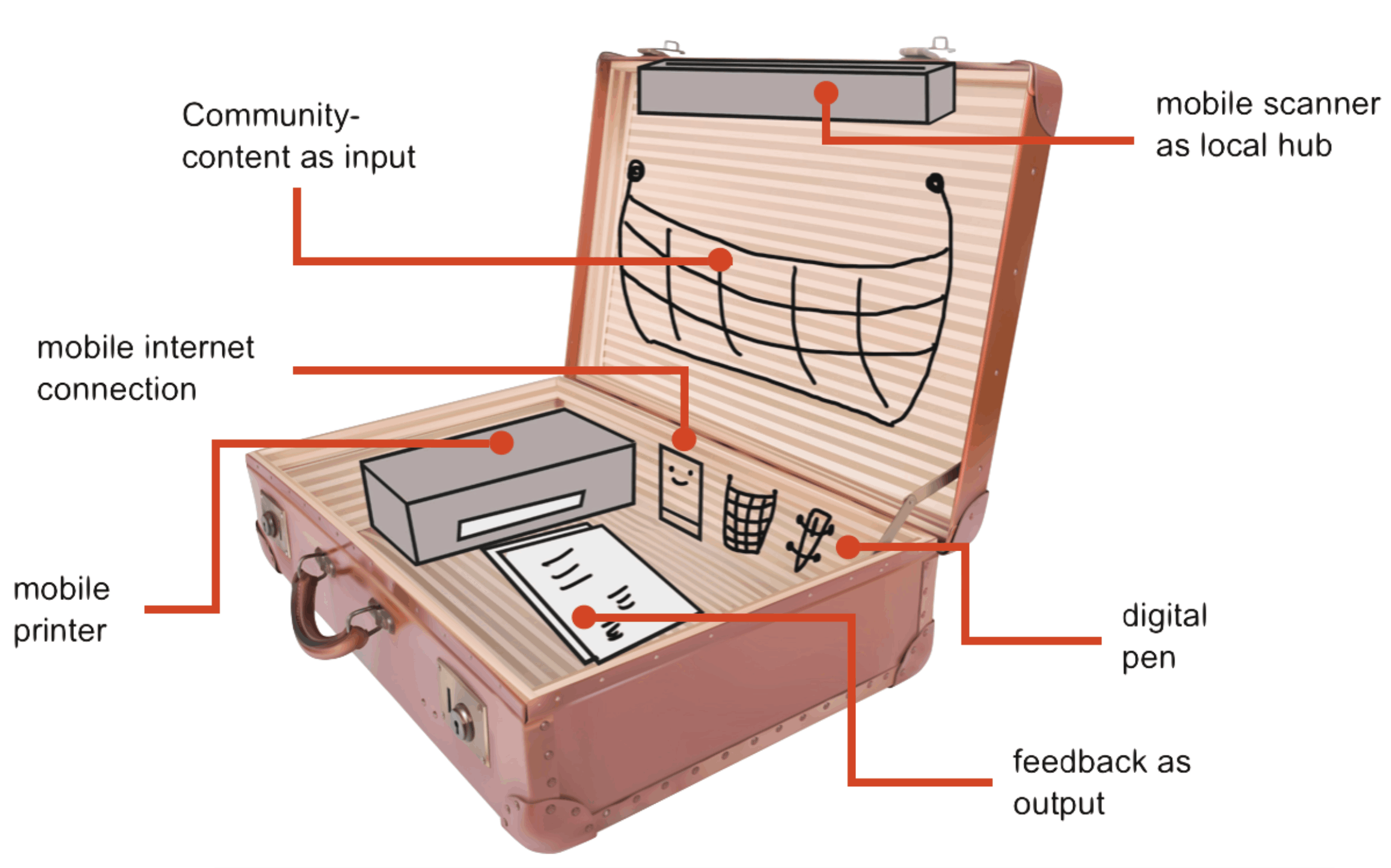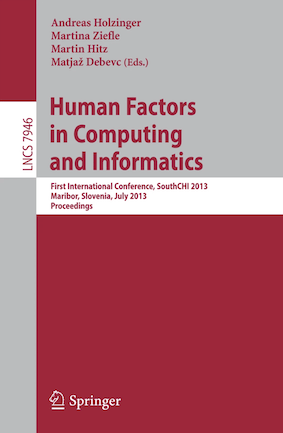
This study resulted also in a conference paper which was peer-reviewed, published and presented at the SouthCHI conference. Title "Assisting Lifestyles: “Laughing, Living and Learning”". Go to conference paper
My role: UX researcher, reflective practitioner
- Reflective design method (Donal A. Schön)
- Observations
- Interviews and surveys
- Collaging
- Cultural Probes
- Video Probes
- Design Games and Scenarios
- TamsAnalyzer
- Livescribe digital pen
- Digital camera – for taking pictures and videos
- Voice recorder

This study resulted also in a conference paper which was peer-reviewed, published and presented at the SouthCHI conference. Title "Assisting Lifestyles: “Laughing, Living and Learning”". Go to conference paper
The ageing population better accepts technology with a human-centred focus and user values. In order to find out how modern ageing can benefit from co-design and design exploration, I was investigating design methods, how a computer scientist can create and co-design new products with a senior community.
I was co-working with a cognitive training community, located in Vienna.
Their community centres are spread across Austria, and the participants meet on a weekly basis.
Our co-creation period was over 12 months. During this time, I was working with two different groups (Monday and Thursday group), aged between 68 and 88 years.
The community program focuses on fluid intelligence, which is covering reaction speed, concentration and logic. Emphasis is also placed on self-representation, as well as on balance and stretching training.
- People aged 55+
- Smaller groups of maximum 12 people
- They meet once per week
- 10 units/semester
- Mainly women
- Low budget
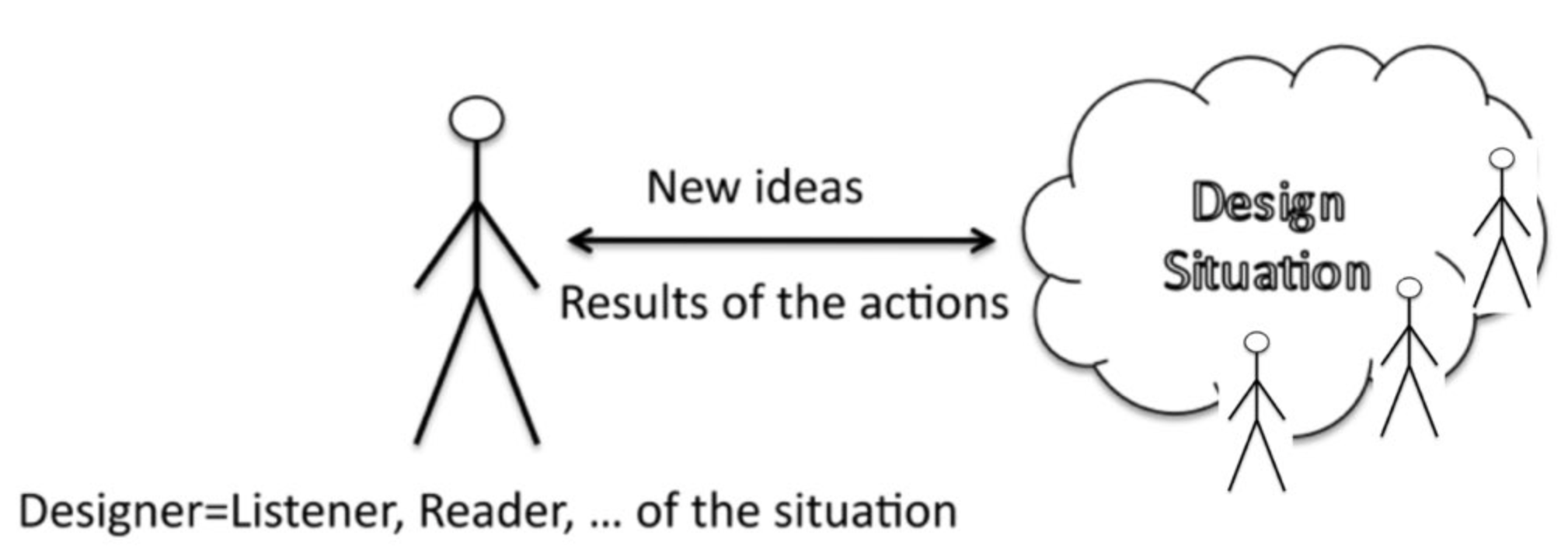
I have created 7 studies which are based on each other to learn more about the community and their values. Focus was on people, community topics, structure as well as community environment and utensils.
When analysing the studies, over 50 community topics were identified with 3 major topics that were used as input for prototypes creation in co-design & reflection:
- Community as fun
- Family and society
- Lifestyle and assistance
I was using 11 prototypes related to study outcomes and community values to reflect deeper on the community and to support a co-design process with the community members.
Fidelity level of prototypes:
- Technology probes
- Design sketches
- Video probes
The prototypes were used by community members and their feedback was collected and used as input for next prototypes.
Design techniques were used to allow an open co-creation with elderly people in their community everyday.
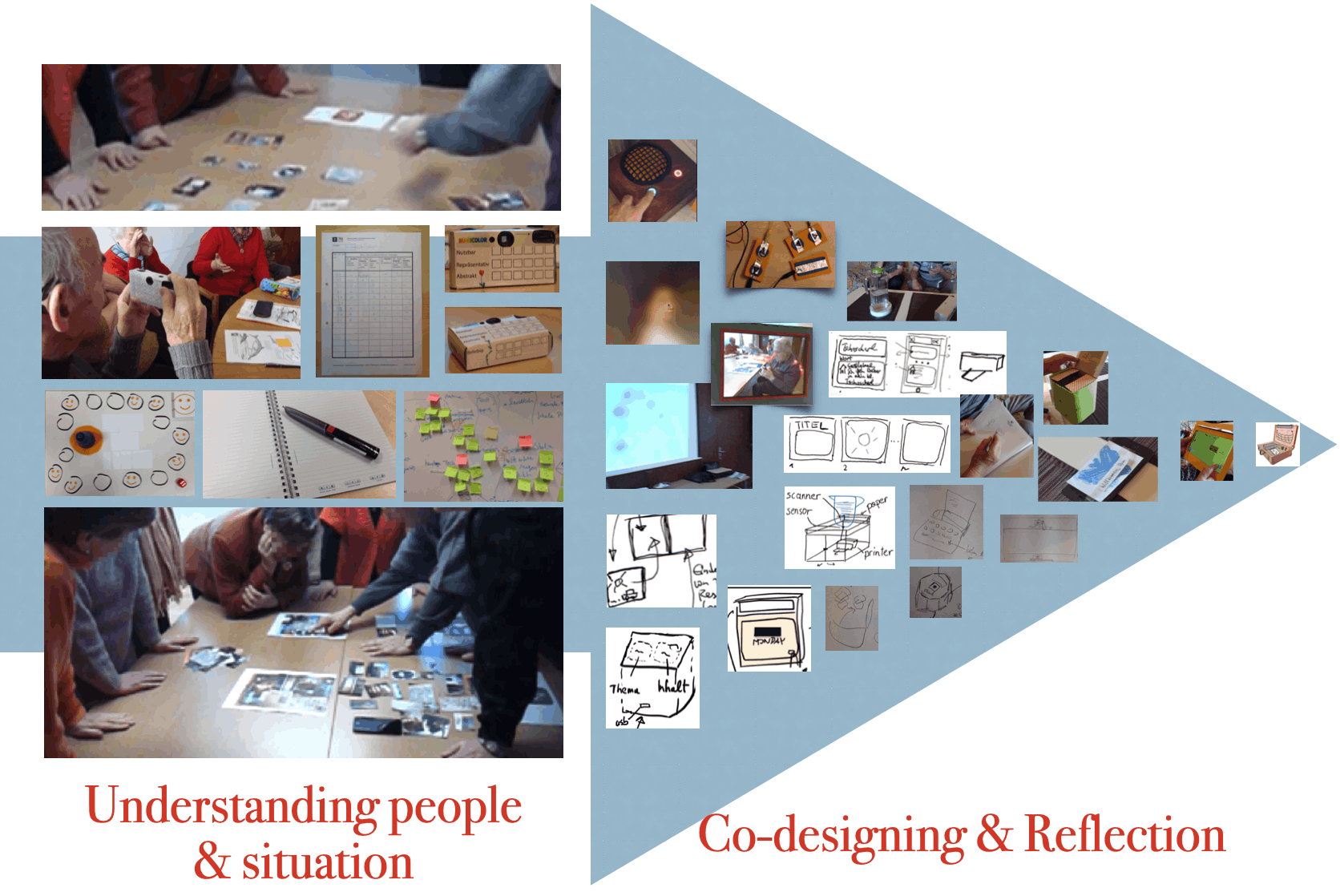
Learning the context
We have initiated a pre-study in order to find out about technology usage of participants and to select two groups, that are fitting well for the study. The focus was on technology usage in general.
An expert interview with the group facilitator was giving first insights in the structure and topics of the community.
Furthermore, an informed consent (NDA) was created and all personal information was anonymised.
Cultural probes: "My pictures" vs "My session" study
In order to understand the design space outside and inside the community, a study was set up by using the cultural probes technique.
Cultural Probes allow people to express their point of views and motivations and answer important research questions in a playful way. The participants of the two groups were encouraged to take pictures of different categories during classes as well as outside the community. They were focusing on taking pictures and describing a story about „what is usable for me?“, „what is representing me?“ and „what are my abstract values?“. – as well as, taking other pictures beyond this categories was also allowed.
This approach helped to understand the group members as well as to identify which shapes, materials and functionalities need to be considered in prototypes.
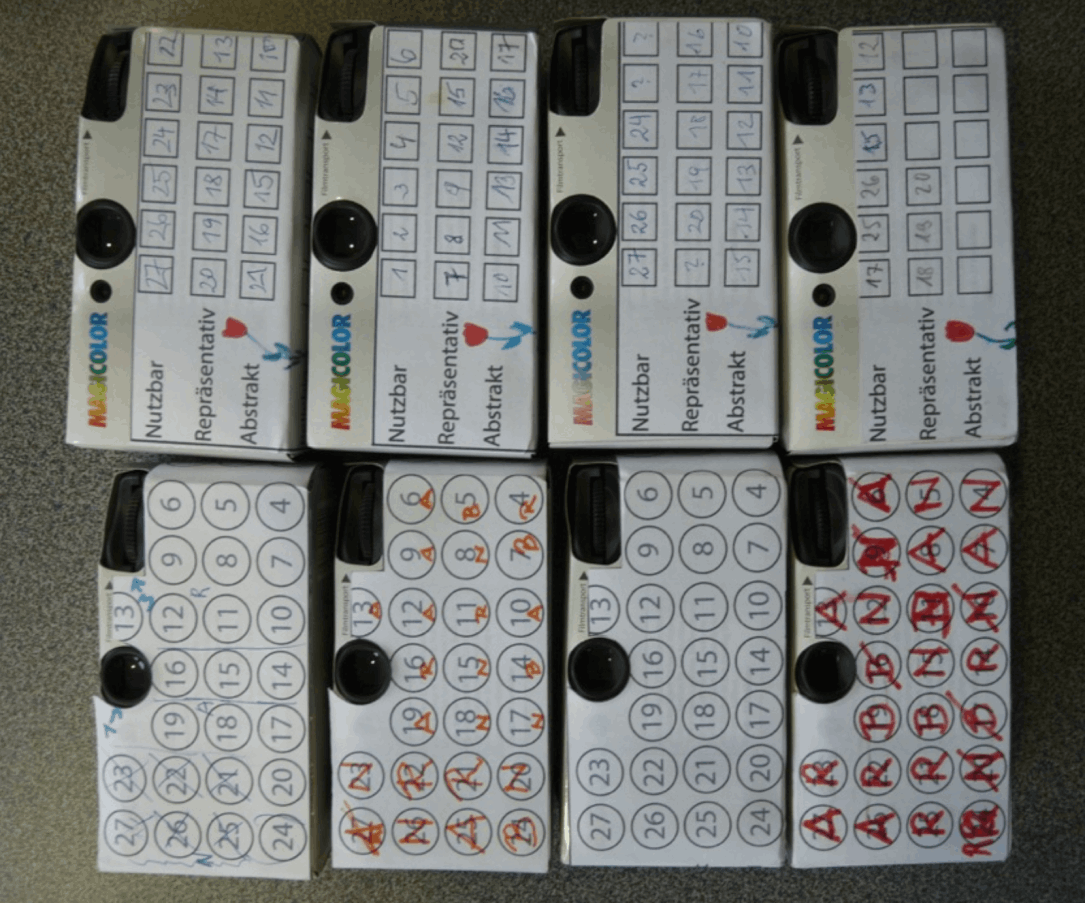
"My pictures" study

"My session" study
Findings of "cultural probes"
- Mainly negative statements concerning technology
- Many problems are from the household
- Solutions are welcomed to be discussed
- Similar experiences are exchanged
Collaging
Collages allow people to express themselves by using images and words. Based on the outcomes of the questionaries form and the interview with the session facilitator, sticker sheets are created and printed out. People were encouraged to discuss positive and negative aspects of technology, based on the stickers as well as write down new additional aspects if needed.
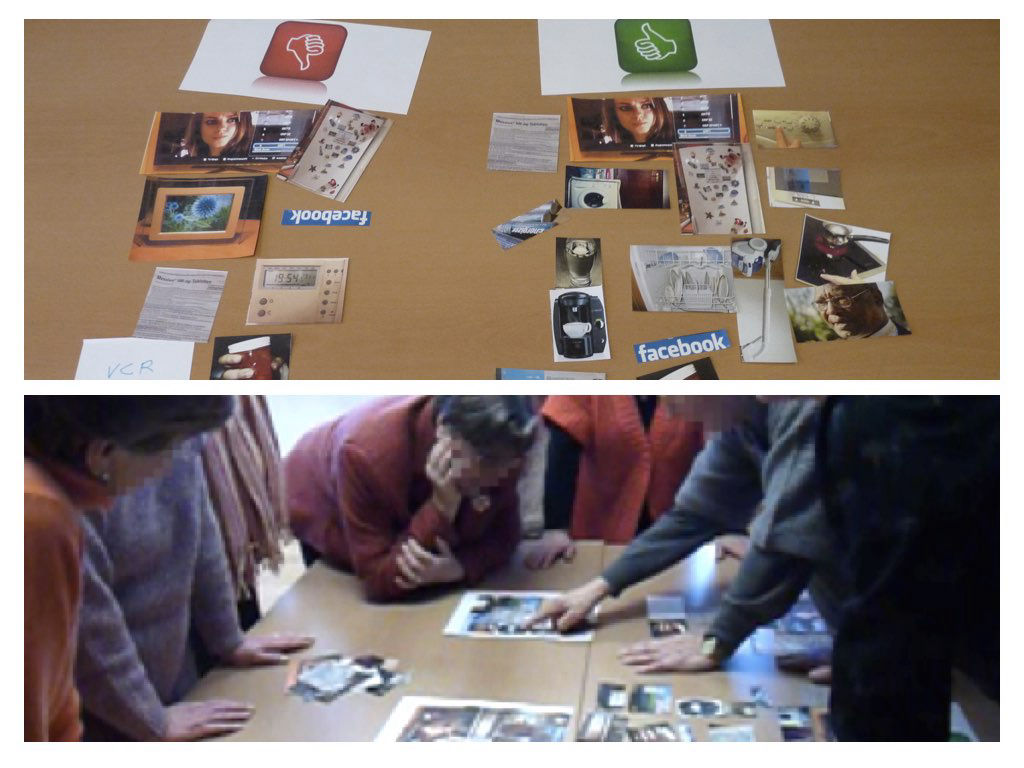
Technology probes
Prototypes are an excellent way to show new ideas and explore the gained community aspects even further. I have been using technology probes like "Prototypes, mockups and wizard of Oz" during my studies.
All prototypes were augmenting community activities with digital and non digital material, in the sense of wizard-of oz prototype technique and are based on the outcomes and findings of previous studies in the same community.
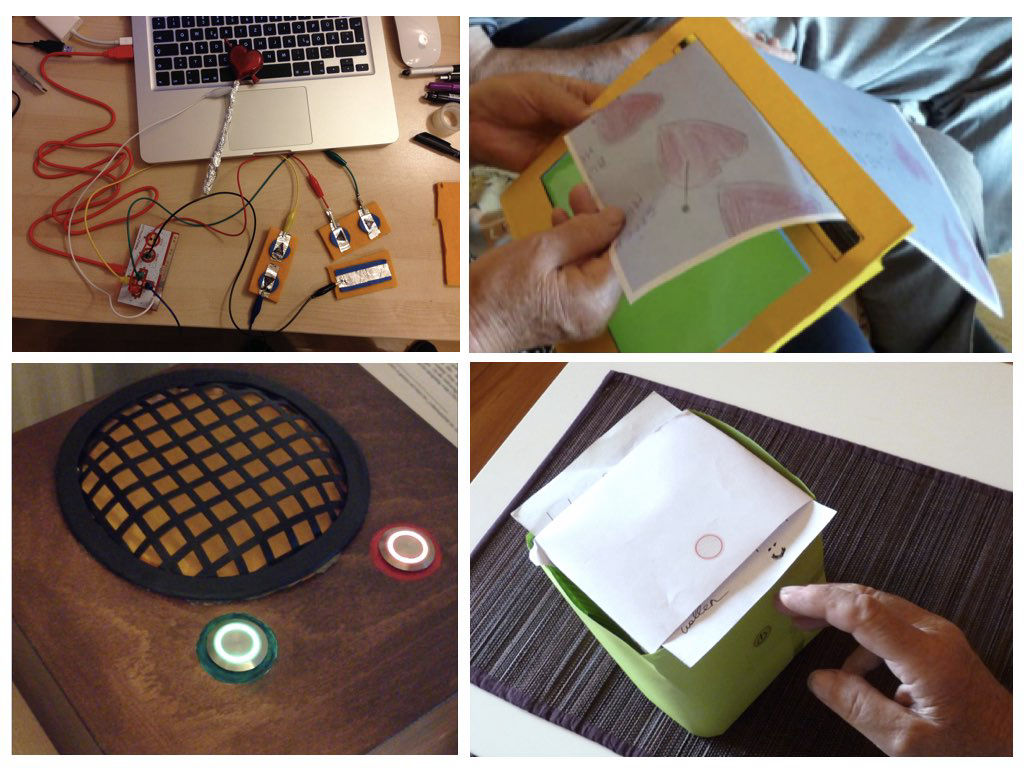
Findings of "technology probes"
Facilitator is looking for work relief
Participants are listening to facilitator
Technology fear should be addressed
It must be a need for using a new device
More self determination is leading to more pressure
Topics are given by facilitator
Working in a group is important
Afraid of using prototypes
Session time plays an important aspect
Finding the best fitting solution for the senior community
All prototypes were cross-checked in a cartesian system. The prototypes are based on already identified community values like "Using existing community topics", "Defining new topics" and "Learning and Socializing".
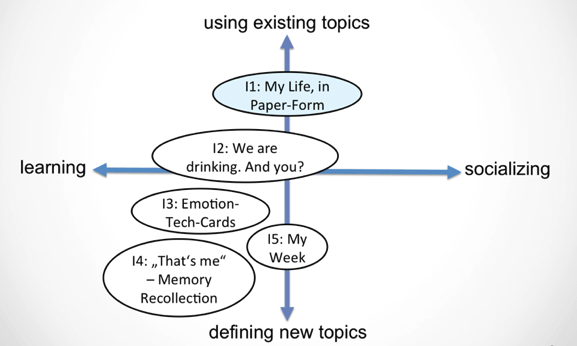
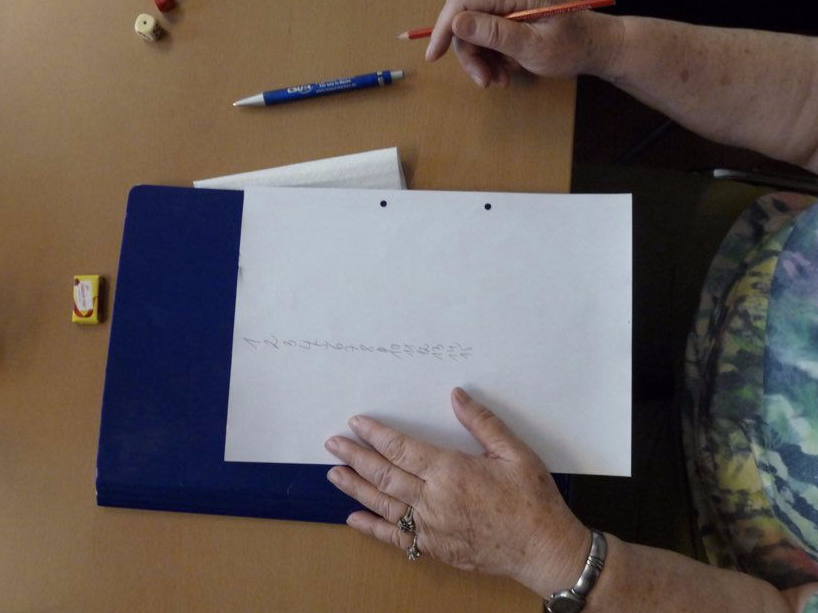
Lifestyle of individuals and specific community settings play a role when designing for senior communities.
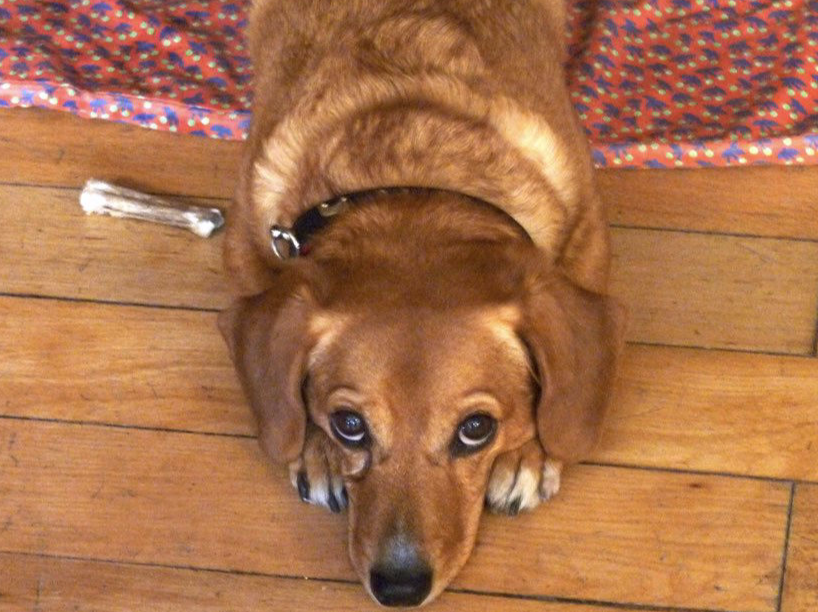
Community values as key variables beyond training functionality were found as well as positive aspects of senior-lifestyle (aspects of routines & enjoyment, communication beyond functionality as well as aspects of personal lifestyle).
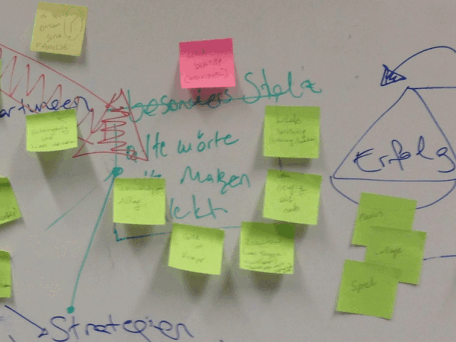
When working with senior communities, the reflective method is important to support decision making in a participatory co-design process.
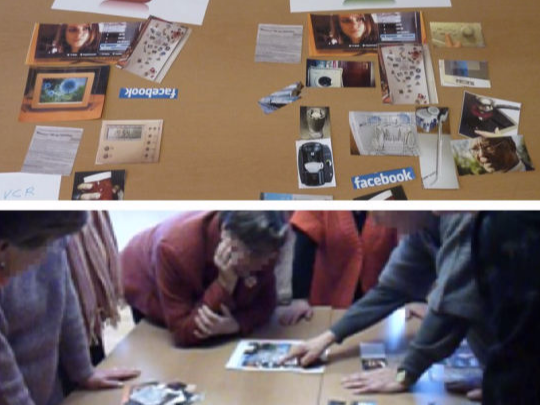
Ambiguity vs. confidence between designer and participants must be in balance.
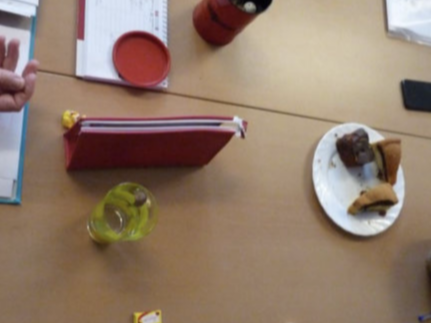
A facilitator, as a guide through the design process, is important as well as augmenting community activities when addressing the issue of limited time.
